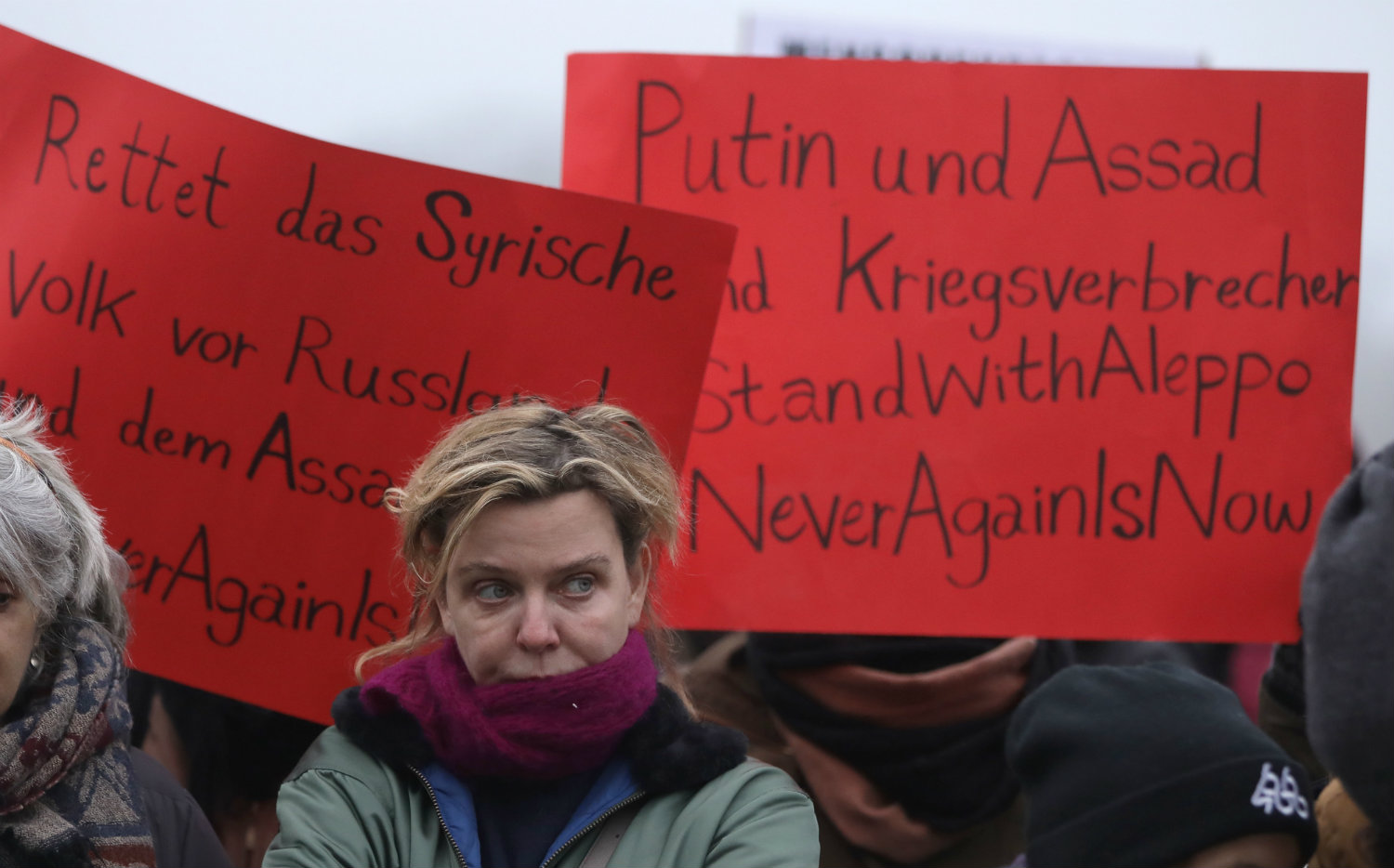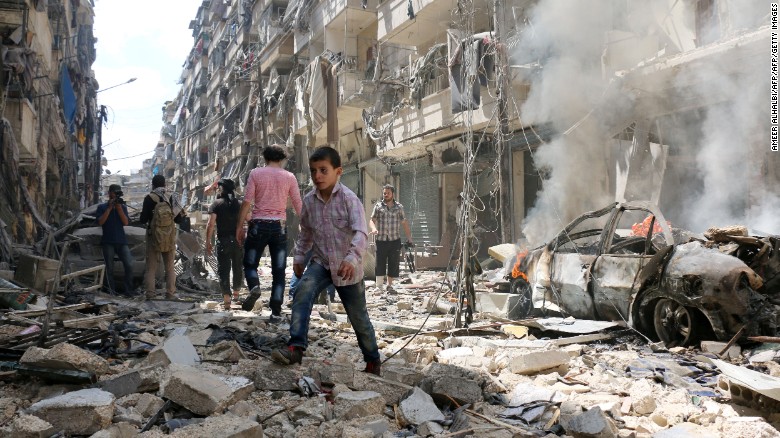Almost six years of nightmare later and after half of the country’s population estimated to have been displaced, Syria is back on newspapers’ front pages and headlines internationally. A lot of highly exposed personalities from Madonna to Bella Hadid have been expressing their concern for Aleppo over the past few weeks exposing the atrocities that awaited civilians’ attempt to flee the war.
Estimated by the UNHRC to be the worst exodus since the Rwandan genocide 20 years ago, most people would easily agree on the fact that Syrian people need help. Pictures of dead or injured children do bring people out to the streets, or at least out on Twitter using hashtags like #StandWithAleppo, #RallyforAleppo, #Youth4Aleppo, #SaveSyria. As people gather all around the world in cities like Sydney, Sarajevo, London and Berlin, it seems like the main message is clear: to denounce the international community for failing to help civilians. However, when it comes to how to do that, it gets blurry.

On Saturday, people in Berlin gathered in front of the lower house of parliament for instance, directly addressing their authorities for their lack of “humanity”. Holding banners saying things like “The children of Aleppo are calling you!”, or “Aleppo is bleeding and the world is watching”. At British protests as well, we noticed a lot of calls for “Peace Talks”. So where is the international community really at?
After repeated United Nations’ Security Council failures, mainly due to Russia countering any proposal to allow international observers into Aleppo for urgent humanitarian action, the General Assembly finally held an unprecedented vote for an investigation on war crimes in Syria on Wednesday. As a result, they are currently setting up an investigative body to gather evidence to hold accountable those responsible for all war crimes and human rights abuses in the country.

In the meantime though, when most agree that holding some responsible for the atrocities in Syria is great, not many are ready to deal with the immigration flow that the continuing war entails. When you know that more than 4.5 million of the estimated 4.8 million Syrian refugees are in just five countries which are Turkey, Lebanon, Jordan, Iraq and Egypt, it is interesting to see hashtags like #theirwarsnotours are used in response to campaigns in favor of welcoming more refugees in the West. Like for example the Syrian Solidarity Campaign in Britain which supports “the unconditional right of Syrian refugees to come to Britain and Europe, humanitarian relief to the refugees, and to the internally displaced and besieged areas in Syria.”
Military intervention is also another controversial topic in the idea of how to “stand with Syria”. Some think more foreign intervention would only add to the fuel (especially given the damage done by Russia and the uselessness of the small NATO presence), and others think there can be no end to the war without NATO members intervening more. People like David Owen think a solution would be regional intervention (essentially by Turkey, Saudi Arabia and Jordan), backed up by bigger parties like NATO members.
WE SAID THIS: Meanwhile, it is of course important for the civil society to just show support and raise awareness on the atrocities committed there in whichever way…as no matter what you think is the solution, everyone can agree that ignoring it definitely is not one of them.


